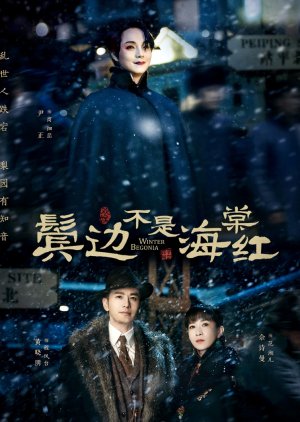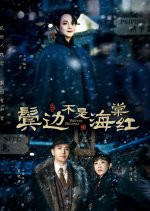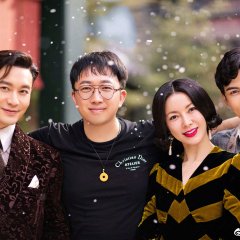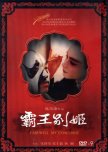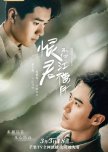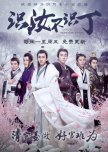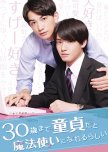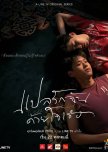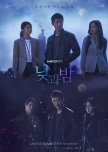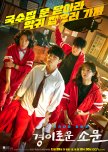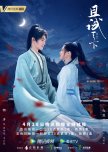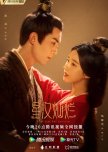 2020 Chinese Dramas Sampler
2020 Chinese Dramas Sampler Stigmatisé comme un étranger et rejeté en tant que tel, Shang Xirui (Yin Zheng) a toute sa vie fait face à des procès, mais cela ne l'a jamais arrêté dans la poursuite de son rêve. Talent exceptionnel dans l'univers de l'Opéra de Pékin, Xirui n'a qu'un seul rêve en tête, partager son amour et sa connaissance de cette superbe forme d'art traditionnel avec le monde entier. Quand le prospère homme d'affaires Cheng Fentai (Hang Xiao Ming) assiste à l'une des performances de Xirui, il est captivé à la fois par l'art et par l'artiste. Partageant une passion pour l'opéra de Pékin, Fengtai et Xirui deviennent les meilleurs amis du monde. Fervent défenseur du travail de Xirui, Fengtai aide son Xirui à reconstruire un théâtre local et à former une nouvelle troupe d'aspirants acteurs afin de prolonger cet art et ses traditions. Alors que les deux amis travaillent en étroite collaboration, leur amitié s'épanouit, chacun trouvant en l'autre quelque chose qu'il n'a jamais connu auparavant : un véritable ami. Mais à l'été 1937, tout ce qu'ils aiment et pour lequel ils ont travaillé si dur est menacé lorsque l'armée japonaise envahit Beijing. Sachant qu'ils doivent se battre pour protéger ce qu'ils aiment le plus, les deux amis prennent les armes au mépris de ceux qui menacent tout ce qui leur est cher. D'après le roman éponyme de Shui Ru Tian Er. « Le Bégonia de l'Hiver » est un drame d'époque de 2020 réalisé par Hui Kai Dong. (La source : Viki) Modifier la traduction
- Français
- 中文(简体)
- Español
- Português (Brasil)
- Titre original: 鬓边不是海棠红
- Aussi connu sous le nom de: Bin Bian Bu Shi Hai Tang Hong
- Réalisateur: Hui Kai Dong, Guo Hao
- Scénariste: Jiu Ren, Yu Zhou
- Genres: Historique, Affaires, Romance, Drame
Où regarder Le Bégonia de l'Hiver
Distribution et équipes
- Huang Xiao Ming Rôle principal
- Andrew Yin Rôle principal
- Charmaine Sheh Rôle principal
- Yalkun MerxatFan LianRôle Secondaire
- Liu MinCheng Mei XinRôle Secondaire
- Li Ze FengDu Luo Cheng [Seventh young master / Librettist]Rôle Secondaire
Critiques

I dreamed a dream.
Winter Begonia is the Downtown Abbey of Chinese opera. To simply describe it as a BL romance would not do justice to the magnificent breadth and the depth of this unforgettable story. This drama sweeps you into the world of Peking opera of 1930s, where changing times challenge the way of life and traditions of the opera troupes. The mood of this difficult period of modern Chinese history is vividly captured in gorgeous cinematography with a muted, nostalgic, old world palette and lovingly detailed sets and costumes. The bittersweet stories of the dimensional surrounding characters puts the main relationship in brutal context; regardless of station, few have free will to follow their hearts and dreams. These were times where most life decisions are made under duress as a matter of expedience or survival. It is within this backdrop that a rare and touching affinity develops between a hard nosed business man and a temperamental Peking opera divo "dan".Warning - there may be mild spoilers in the following paragraphs.
Shang Xirui is a newcomer that takes the Peking opera scene by storm with his daring interpretation of classic operas and his ability to immerse himself in his female "dan" (旦) roles. Xirui is the ultimate drama queen - mercurial, fearless, unyielding, unforgiving, relentless, sentimental, kind and loyal - a brilliant wunderkind who is capable of both love and hate in equal fervor. Despite his theatrical genius, he is almost childlike in his simplicity towards human relationships and is not fully up to the task of managing his troupe or navigating the competitive and political headwinds of the time. This intense and multi-faceted character experiences the most growth in this drama and is incandescently portrayed by Yin Zheng. His "dan" breaths life into the Yang Guifei and other legendary beauties of Chinese history and literature in a way that rivals Leslie Cheung's iconic performance in Farewell My Concubine. That said, Chen Renxiang's (Tan Jianci) coy come hither "dan" moment was dazzling and that character's final act surely must have been written as a tribute to the movie. This is a testimony to the talent and diversity of the cast and the characters they portray in this drama.
At surface, Cheng Fengtai couldn't be more different from Shang Xirui. He is a charming, savvy and ruthless entrepreneur with a devil may care attitude towards danger. But underneath that devastating smile, he is the saddest, bravest character in the drama. He is someone who gave up his dreams in the name of duty and familial obligations. His was not a love match but he shares common values with his wife, appreciates her and does his best to be the man of her dreams. This character is almost too perfect - he carries the weight of the world on his shoulders, tries to do the right thing and lives up to what is expected of him - as husband, father, brother, patron, friend and... soul mate. He is swept off his feet by Xirui's genius and overcome with admiration for his single mindedness in following his convictions in the face of criticism, adversity and against daunting odds. Xirui is his muse and their Shui Yin Lou is his rich man's folly where he vicariously reconnects with his long forgotten dreams and aspirations. Only Fengtai can understand and pacify Xirui when he is his most rabid, unreasonable, irascible self. Without taking away from Yin Zheng's virtuoso performance in a technically very difficult role, Huang Xiaoming's Cheng Fengtai was equally powerful and evocative. Theirs is a higher love, a bond that goes beyond words and is much more cerebral than physical. The acting is superb and the chemistry is palpable with both actors conveying emotions beyond words in their actions and the brilliant glitter of unshed tears in their eyes.
The drama itself is well paced and strikes the right balance in mood between heavy and light scenes as well as triumphs and setbacks. It is extremely well written, with many wickedly funny and witty moments and characters that subtly mock the stereotypes of those times. The story is much bigger than the two protagonists and is given weight, definition and substance by colorful surrounding characters with layers of flaws and strengths. Fengtai's wife is an awesome character; a smart and capable woman who is limited by the social strictures and biases of her time. Yet at the end, she is able to surpass the norms of the day and embrace a broader, more generous definition of qin ren (亲人) or family. Fengtai's brother-in-law is just a clownish parody of an entitled dilettante and Xirui's rivals were perhaps a tad ridiculous as villains but they serve their purpose. My favorite couple by far was the bandit and the general - they were so humorous and dangerous at the same time my only regret was we didn't get to see them spawn an army of terrifying bandits in their mountain fortress.
If I had to pick at flaws, the drama had too many melodramatic romantic plot-lets around the low social status of the performers and their forbidden liaisons that cross class lines. In the second half, so many characters were killed off that it became a bit gratuitous notwithstanding the well known brutalities of the Japanese occupation. While not as overtly heartbreaking as the tragedies, the moments of slow burn despair in the first half made a much deeper impression on me.
I will not pretend that watching this made me able to appreciate Chinese opera the way it should be appreciated but at least now I can see the beauty and appeal. When my grandma used to listen to it with a teary faraway look in her eyes, I also wanted to cry because it sounded to me like a cacophony of scalded cats. Without making a documentary of it, this drama delivered some achingly beautiful performances that captures the highlights of some of the best known classic operas and emphasizes its importance as a form of hidden social criticism and expression of the joys and sufferings of the masses. While I can't say I have become a die hard fan, I will never cringe again at the characteristically high pitched, occasionally piercingly sorrowful tunes. Indeed I may even have to confess to (somewhat) enjoying it.
This drama has one of the best endings that remains true to the book and is yet (to me) unambiguous. Fengtai and Xirui are kindred spirits zhi yin (知音) and if like Fengtai you have been listening to Xirui, then you will just know him; thus his choice at that moment in time is clear and requires no further elaboration. The future is still up to serendipity and destiny.
This is a very big and generous story that will pull you in and make you care about the many wonderful people in it and mourn the passage of time and events that have stolen their dreams. It is not perfect and falls just short of a masterpiece but it is by far the best drama I seen so far in 2020.

ACTING- Andrew Yin was AMAZING as Xirui. He really stood out to me, and I felt like he really captured the character of Xirui well. I was never the biggest fan of Xiao Ming but he did really well in this drama. The whole cast did a really great job.
MUSIC- I thought the soundtrack was really well done. The Peking Opera songs were so beautifully done.
REWATCH- I will most likely watch this show again. Even if this show is really heavy at times and can be a tearjerker, it just to stunning to not watch again.

